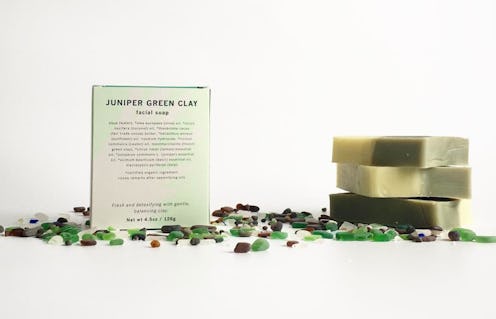Style
Here's What Experts Say About Using Skin Care Containing Alcohol
When it comes to ingredients that we allow in our skin care, many of us likely have a list of things (whether it's just one or two, or maybe even a page long) that we try to avoid. Some common ones might be parabens, sulfates, and fragrance, but a tricky ingredient to decide on is alcohol. After all, so many products include some form of it that I have to wonder if it's strictly bad to have alcohol in skin care. I mean, when we think of the word "alcohol," our minds probably jump first to either the drinking or rubbing type. And both of these are notoriously drying.
Now I'm going to assume that nobody wants her skin to be dry, so why in the world would we want to slather products containing drying agents on our faces? Turns out, alcohol in skin care is not always a bad thing. So to find out why this ingredient might be in your skin care and when you should avoid it, I emailed with Jordana Mattioli, NYC-based esthetician, and Tara Pelletier, co-founder of Meow Meow Tweet. According to both of these experts, there is a certain family of alcohols called fatty alcohols, and these can actually be good for your skin.
Try: Perricone MD H2 Elemental Energy Hydrating Cloud Cream, $80, Sephora
Yep, fatty alcohols, which Mattioli tells me includes alcohols such as cetearyl, stearyl, and cetyl alcohols, can "improve texture, spreadability, act as emulsifiers, and also disperse scent molecules and actives more evenly throughout the product," says Pelletier. So if you see these types of alcohols on your skin-care labels, fear not. They shouldn't cause dryness or irritation.
Simpler forms of alcohol, however, could be a problem. Mattioli explains denatured alcohol (usually listed as "Alcohol Denat."), SD alcohol, or isopropyl alcohol can be irritating to the skin and even strain your skin's normal functions— especially if listed within the first five or six ingredients of a product. While these tend to be found in products to help control oil or help other active ingredients penetrate better, Pelletier says any product that leaves a "squeaky clean" feeling means that "the natural oils are being stripped from your skin which can lead to dryness and an overproduction in sebum." And that, she says, can cause or exacerbate oily skin and blemishes.
Try: Meow Meow Tweet Face Toner, $24, Meow Meow Tweet
But the good news is that these simpler forms of alcohol aren't really necessary in skin care anymore. Mattioli says, "These days, skin-care technology has gotten so much better. There are so many other vehicles to enhance absorption without the use of those alcohols." Not to mention there are also newer ingredients that can lend a matte finish without drying out your skin.
So even though skin care with simpler alcohols listed low on the ingredients label should be OK to use, if you'd rather not risk potentially drying or irritating side effects, stick to skin care without denatured, SD, or isopropyl alcohols. But remember: Not all alcohol in your skin care is bad.
